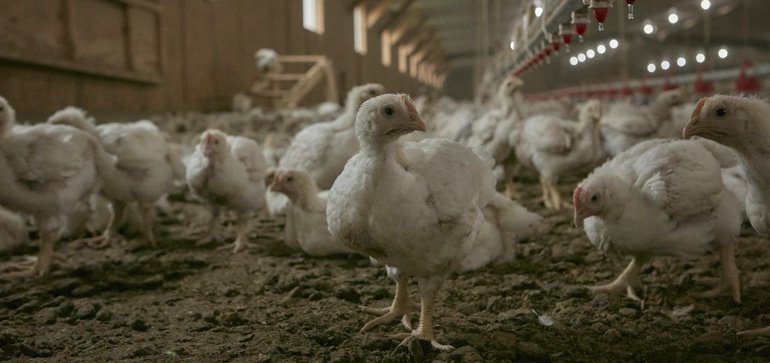How Perdue and Mercy For Animals found common ground

The following is a guest post from Mark McKay, president of Perdue Premium Poultry and Meats, and Leah Garcés, president of Mercy For Animals.
If you had told us years ago that we would be writing this together –– a president of one of the largest chicken companies and the president of one of the largest animal rights groups –– we would have been incredulous. Historically, meat companies and animal rights organizations have been more foe than friend. This is certainly how the relationship began between Perdue and Mercy For Animals.
In 2015, Mercy For Animals released an undercover video of a Perdue chicken farm showing abuse by contract workers. All too commonly, companies go into defense and denial mode when faced with such footage.
But if you flip the coin, a business can find opportunity in this sort of exposure. It is a rare moment when a company humbly embraces the harder — but ultimately more rewarding — path. Perdue knew that what the video had shown represented not only an opportunity but also a responsibility to animals, customers, and consumers to uphold the company’s standards. So Perdue picked up the phone and did something meat companies rarely do: It called Mercy For Animals.
A stunned Mercy For Animals sat at the other end of the call. Here was Perdue thanking the organization for the investigation that had exposed animal handling contrary to the company’s standards — and promptly acting to remedy it. Perdue also invited Mercy For Animals, along with other animal advocacy organizations, to a discussion about continual improvement to animal-raising practices.
First we needed to build trust. The divide was great, and no past collaborations of this kind existed to guide us. But over time, through honest and open communication, we found that we had more in common than we had thought. Often, when facing the so-called opposition, people focus on areas of disagreement and difference rather than common ground. In this case, both organizations recognized our shared goals and understood our duty to work together.
But working together had its pitfalls. Mercy For Animals risked looking like a sellout. Perdue took a risk by admitting it had “gotten away from the farm.” That’s a lot of risk — and tension — bundled into one situation. But sometimes taking risks pays off enormously.

Mark McKay
Permission granted by Perdue Premium Poultry and Meats
Our conversations were challenging, especially in the beginning, but the tension felt reassuring. Tension is the sense of the gap between where we are and where we’d like to be. This tension facilitates conversation and drives change.
Just months after the investigation’s release, Perdue, with praise from Mercy For Animals, the Humane Society of the United States, and Compassion in World Farming, committed to the most comprehensive animal welfare policy of any U.S. poultry company. Perdue didn’t claim to be perfect but charted a path toward industry leadership and continual improvement in animal welfare.

Leah Garcés
Permission granted by Mercy For Animals
Each year, through ongoing conversation, Perdue moves up the ladder of animal welfare; nearly 52% of Perdue’s conventional farms are now windowed — and as the No. 1 supplier of USDA organic chicken, Perdue provides 25% of its chickens with outdoor access. Perdue made a promise, and Mercy For Animals works closely to provide feedback through informal meetings and participation in Perdue’s Animal Care Summit. The relationship is sustained by our firm mutual commitment to ongoing progress.
Everyone involved is benefiting. Each year, Perdue publishes an animal care report and hosts a conference to report progress toward existing goals and share new ones, and invite feedback and ideas for continual improvement.
Chickens benefit from Perdue’s dedication to the Better Chicken Commitment, a set of animal welfare standards supported by animal advocacy groups. This commitment requires companies to meaningfully reduce animal suffering by giving chickens more space and a better environment, minimizing their suffering during slaughter, and using breeds not prone to painful and debilitating conditions.
We hope the food industry and those working to improve it will be inspired by our collaborative approach. The journey from adversary to ally requires conversation, sometimes compromise, and certainly discomfort for both sides. But without these — and the coming together of different stakeholders — no one wins. We must always search for the place where our goals align. This is the critical path to progress that will lead us all to a better food future.
Source: fooddive.com

